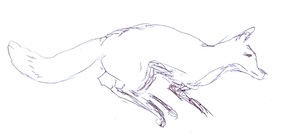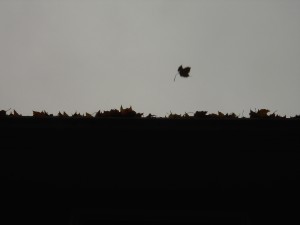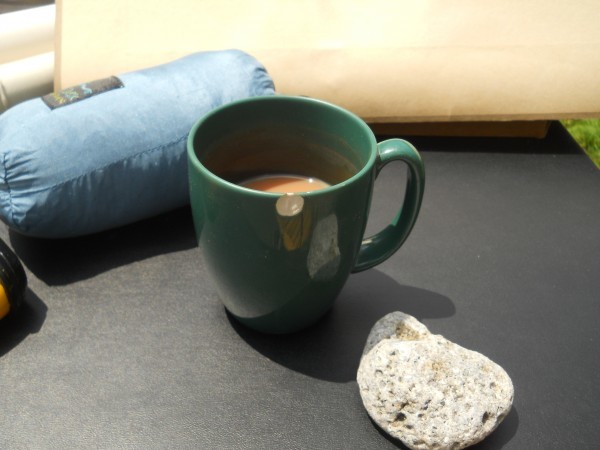The McKinnock Hill Fox – a flash story
May. 20th, 2024 05:49 pmThere was this place where the sidewalk pressed right against the flank of McKinnock Hill. Walking that section of sidewalk, you’d have ferns dropping moisture on your shoulders. It was a narrow sidewalk: you couldn’t walk on it and hold your left arm out straight. Too much McKinnock Hill in the way. But if you bent your arm, you could press your hand into the hill’s thick moss.
You could also kiss a bare patch of stone. That was the kind of thing we’d do when we walked home from school as kids: “Kiss that spot there … Gross! You just kissed McKinnock Hill! You’re going to marry McKinnock Hill!”
There were animals on McKinnock Hill. Mainly squirrels and chipmunks were what we saw, but sometimes there’d be roadkill—possums or the occasional raccoon. So we knew those lived up there too.
And foxes, too. A place like McKinnock Hill has to have foxes.



( At some point we heard a story... )
I have turned this little story into a PDF with the foxes in the header ;-) If you would like a copy--if you would like a copy to send to your millions of friends so that my flash-fiction reputation spreads like a tsunami worldwide!--you can message me here or send me an email at forrestfm (at) gmail dot com, and I will email it to you.
You could also kiss a bare patch of stone. That was the kind of thing we’d do when we walked home from school as kids: “Kiss that spot there … Gross! You just kissed McKinnock Hill! You’re going to marry McKinnock Hill!”
There were animals on McKinnock Hill. Mainly squirrels and chipmunks were what we saw, but sometimes there’d be roadkill—possums or the occasional raccoon. So we knew those lived up there too.
And foxes, too. A place like McKinnock Hill has to have foxes.



( At some point we heard a story... )
I have turned this little story into a PDF with the foxes in the header ;-) If you would like a copy--if you would like a copy to send to your millions of friends so that my flash-fiction reputation spreads like a tsunami worldwide!--you can message me here or send me an email at forrestfm (at) gmail dot com, and I will email it to you.











